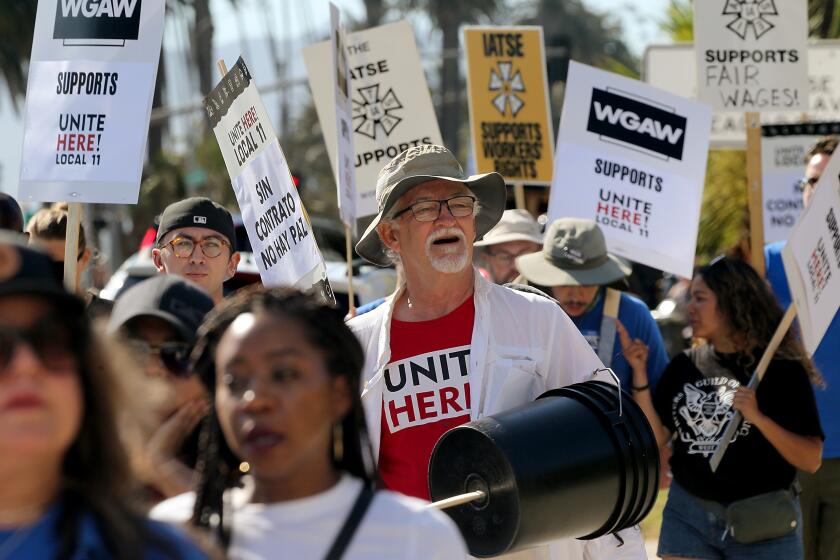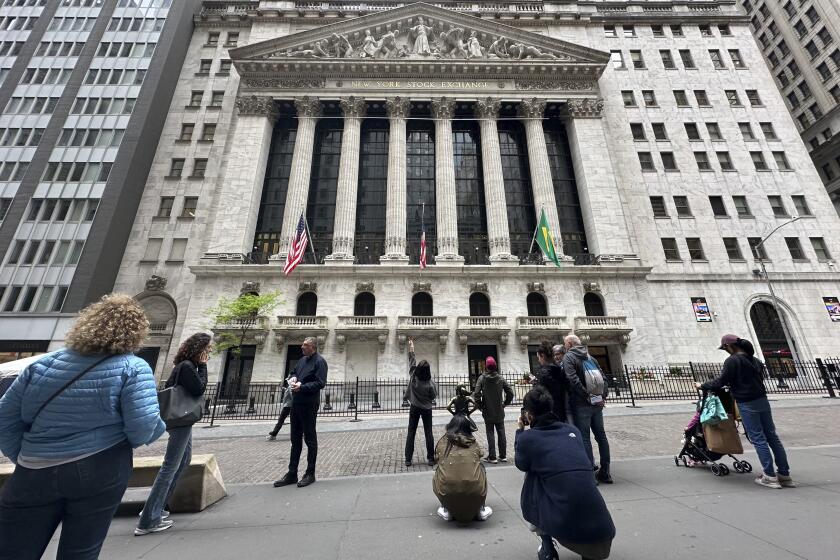Answer Lies in Real Competition
As economics is taught at Chicago and its numerous outposts, competitive markets are omniscient, and never more clearly so than on Wall Street.
The Reagan Administration’s first antitrust chief, Stanford’s William F. Baxter, a deep drinker at the Chicago font of wisdom, smiled benignly at almost any merger that T. Boone Pickens, Carl C. Icahn or the now-disgraced Ivan F. Boesky could dream up and Drexel Burnham Lambert could finance with its patented junk bonds. The impersonal wisdom of the stock exchange necessarily rearranged assets in ways that enhanced stock values, improved products, widened consumer choices and cut prices. Otherwise, investors would have rejected the deals.
The Department of Justice accordingly saw scarcely a merger it didn’t love. It hardly matters that the market has been rigged and that inside trading has severely distorted the outcomes and rewards of merger and acquisition ploys.
The past year or so in particular has severely tested this modernization of Adam Smith’s invisible hand.
General Motors, which triumphantly teamed up with H. Ross Perot’s Electronic Data Systems to learn all about high tech and absorb the Perot entrepreneurial elan, celebrated Christmas 1986 by paying Perot $743 million to go away and keep his mouth shut. If he yields to temptation, he is subject to fines as large as $7.5 million. The outlook is not good that the uneasy alliance of General Motors and EDS will operate to the benefit of either firm.
Goodyear has paid greenmail to Sir James Goldsmith and weakened itself in the process. CBS went deeply into debt to ward off Ted Turner and suddenly found itself in the clutches of the Tisch family. So it has gone.
Not a scintilla of evidence suggests that the new fashion in corporate elephantiasis has served purposes worthier than enrichment of speculators, investment bankers and lawyers--talented folks who should be adding to the gross national product instead of subtracting from it.
Top managements spend the bulk of their excessively rewarded time wooing white knights, confecting poison pills, designing leveraged buyouts and writing greenmail checks. The impact upon employee morale varies from negative to calamitous. The victors award themselves large salaries and bonuses for firing regiments of subordinates and closing as many facilities as possible.
On other fronts, the Pentagon continues to negotiate sweetheart deals with a handful of huge defense contractors whose cost overruns are routine, weapons defective, arrogance legendary and profits unconscionable. The highly concentrated auto industry makes profits only because “voluntary” limitations upon Japanese exports award it a protected market. The concentrated steel giants lose money despite trigger prices, import controls and other protective devices instituted by Congress in response to intense pressure from management and unions. Highly efficient, much smaller mini-mills, by contrast, operate competitively with foreign producers.
The auto and steel industries have steadfastly resisted innovation, ignored market preferences, and, when terminally wounded, sought and received federal help. Auto magnates rejected signs that consumers wanted smaller, fuel-efficient vehicles, resisted pollution controls and continue to dodge installation of air bags.
One penalty inflicted by corporate obesity is the near certainty that help will be forthcoming when bankruptcy looms. Lockheed, Chrysler and Continental Illinois exemplify the situation. Why should a huge, money-market bank evaluate new loans prudently when it can rely upon Federal Reserve Chairman Paul Volcker to rescue it in order to preserve market stability?
As Walter Adams and James W. Brock persuasively argue in the just-published “The Bigness Complex,” we urgently require vigorous antitrust action, particularly against conglomerate mergers. Only professors of management and Chicago School economists believe that the magic of management science enables talented financial types to efficiently operate unrelated enterprises about which they know little or nothing.
High Employment Pivotal
However, a turn to genuine competition is unlikely as long as we tolerate 7% unemployment rates. Politicians will always heed the anguished outcries of workers and merchants who fear for jobs and sales when plant closings and corporate bankruptcies loom. Protectionists will be powerful when the economy is slack.
Those who admire competition and seek to restore American international competitiveness should actively support high employment policies and the job retraining efforts needed to prepare workers for decently paid employment in emerging industries.
In a high-employment economy, it should be possible to rein in the Pentagon, which gains much of its strength as a source of scarce jobs cunningly distributed in all 435 congressional districts.
Until and unless we return to the 3% to 4% unemployment rates of the 1960s, no administration, even one less ignorantly indulgent to business than this one, will be able to allow mismanaged enterprises to fail, uncompetitive industries to shrink and genuine competition to generate urgently needed efficiencies--the only source of widely dispersed improvements in living standards.






